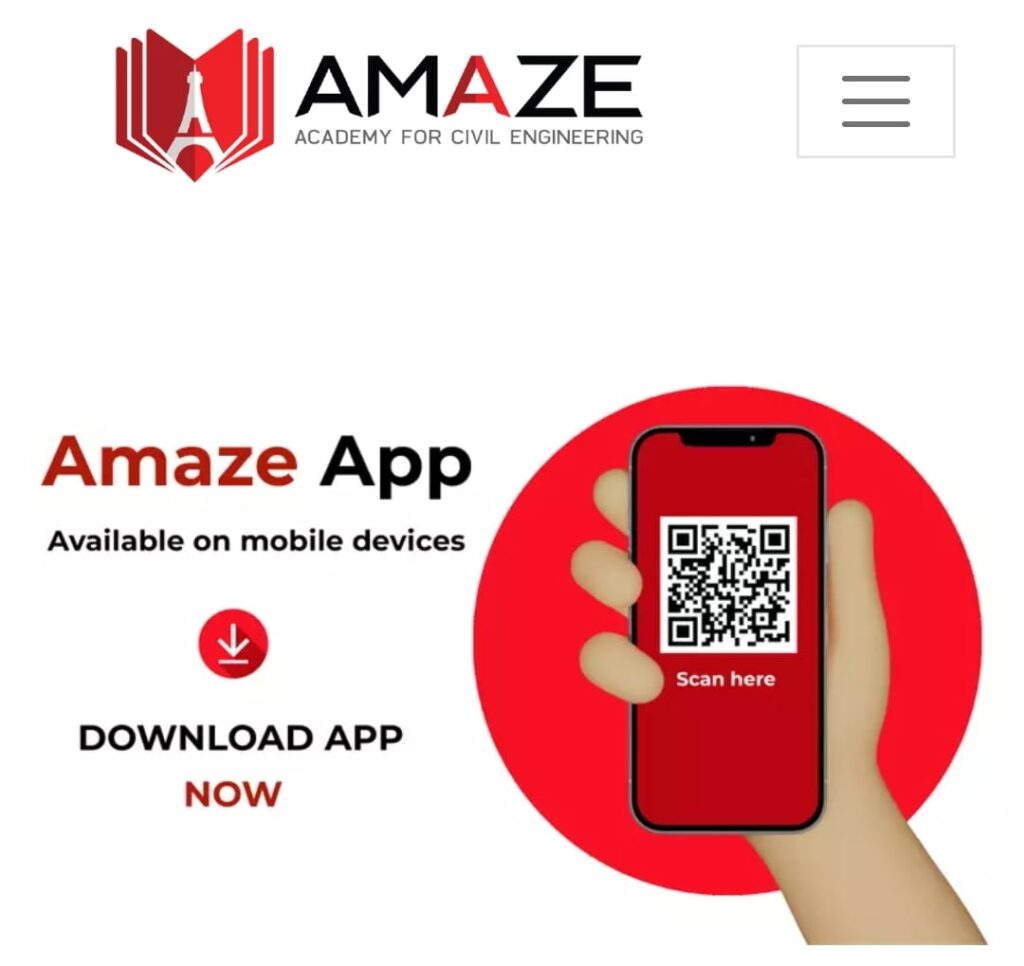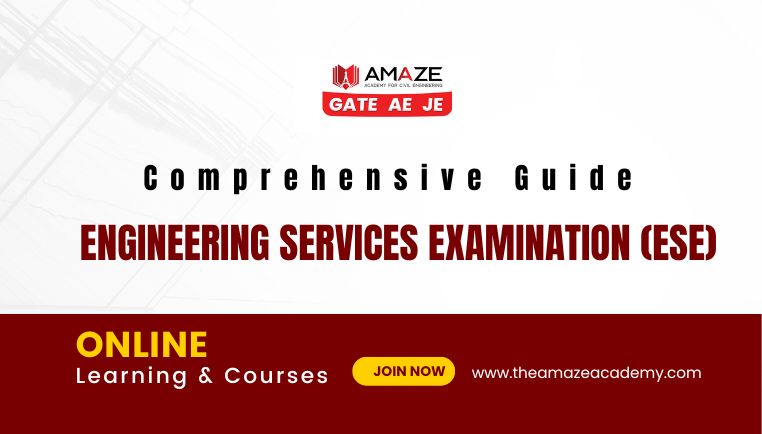A Comprehensive Guide to the Engineering Services Examination (ESE)
The Engineering Services Examination (ESE), conducted by the Union Public Service Commission (UPSC) in India, is a prestigious and challenging examination that opens the doors to a promising career in various engineering services. This blog aims to provide a comprehensive overview of the ESE, covering key aspects such as eligibility, exam pattern, preparation strategies, and the significance of this examination in shaping the future of aspiring engineers.
Understanding the ESE:
- The ESE, also known as the Indian Engineering Services (IES) examination, is conducted annually to recruit engineers for various government departments and organizations.
- The exam is categorized into four branches: Civil Engineering, Mechanical Engineering, Electrical Engineering, and Electronics & Telecommunication Engineering
UPSC ESE Exam Pattern 2024 Overview | |
Organizing Body | Union Public Service Commission |
Post Name | IES Officers (Grade A) |
Total Posts | 167 |
UPSC ESE Prelims Exam Date 2024 | 18 February 2024 |
Selection Process | Prelims | Mains | Interview |
UPSC ESE Official Website | www.upsc.gov.in |
Eligibility Criteria
- Educational Qualification: Candidates should hold a degree in engineering from a recognized university.
- Age Limit: As of August 1, of the examination year, candidates should be between 21 and 30 years old. Relaxations are applicable for certain
- A candidate must be either:
- a citizen of India, or
- a subject of Nepal, or
- a subject of Bhutan, or
- a Tibetan refugee who came over to India before the 1st January, 1962 with the intention of permanently settling in India, or
- a person of Indian origin who has migrated from Pakistan, Burma, Sri Lanka or East African countries of Kenya, Uganda, the United Republic of Tanzania, Zambia, Malawi, Zaire and Ethiopia or from Vietnam with the intention of permanently setting in India.
Provided that a candidate belonging to categories (b), (c), (d) and (e) above shall be a person in whose favour a certificate of eligibility has been issued by the Government of India.
Exam Pattern:
- Three Stages of Examination: The ESE comprises three stages – Preliminary, Main, and Personality Test. Understanding the purpose and structure of each stage is crucial for effective preparation.
- Stage-I: Engineering Services (Preliminary/Stage-I) Examination:
- Objective type (multiple choices) questions.
- Two papers with a total of 500 marks (Paper-I: 200 Marks, Paper-II: 300 Marks).
- Only qualified candidates proceed to Stage-II.
Subject | Duration | Max. Marks |
Category-I Civil Engineering | ||
Paper-I (General Studies and Engineering Aptitude) | 2 hrs. | 200 |
Paper-II (Civil Engineering) | 3 hrs | 300 |
Total | 500 |
- Stage-III: Personality Test:
- Consists of a Personality Test carrying 200 Marks.
- Candidates are evaluated on leadership, initiative, intellectual curiosity, tact, social qualities, mental and physical energy, practical application, and integrity.
- Evaluation and Negative Marking:
- The commission sets a list of candidates qualified for Stage-II based on minimum qualifying marks in General Studies and Engineering Aptitude Paper (Paper-I) and Engineering Discipline specific paper (Paper-II) of Preliminary/Stage-I Examination.
- Negative marking is applicable for wrong answers in the objective type papers.
- One-third (1/3rd) of the marks assigned to a question will be deducted as a penalty for each wrong answer.
- Multiple answers to a question are treated as wrong, even if one is correct.
- No penalty for unanswered questions.
- Final Ranking and Allotment:
- Marks obtained in all three stages determine the final ranking.
- Personality Test contributes 200 marks to the overall score.
- Candidates are allocated to various services based on their ranks and preferences.
- Special Instructions and Language:
- Candidates must carefully read special instructions for both conventional and objective type tests, including the procedure for filling in the Answer Sheet, available on the UPSC website.
- Conventional papers must be answered in English, and the question paper will also be set in English.
Preparation Strategies
- Thorough Syllabus Understanding: Understanding the detailed syllabus is crucial for effective preparation.
- Strategic Planning: Develop a well-structured study plan that covers all subjects and allocates sufficient time for revision.
- Practice Regularly: Solve previous years’ question papers and take mock tests to improve time management and identify weak areas.
- Stay Updated: Keep abreast of current affairs, as the preliminary examination includes questions on general studies.
Recommended Books and Resources
- Civil Engineering: “Civil Engineering: Conventional and Objective Type” by R.S. Khurmi and J.K. Gupta.
- Theory of Structures/ Analysis of Structure by L.S. Negi & Jangit, Gupta & Pandit, C.S. Reddy
- Soil Mechanics & Foundation Engineering by R.F.Craig, Muni Budhu
- Soil Mechanics And Foundations by B C Punmia, Ashok Kumar Jain, And Arun Kumar Jain
- Environmental Engineering by G.O.I Manual, S.K. Garg (Part-I & II), Peavy and Rowe, Metcalf & Eddy
- Fluid Mechanics and Fluid Machines by Modi & Seth, R. K. Bansal, Cengel and Cimbala, K. Subramanyam, Jagdish Lal.
- Highway Engineering by Khanna & Justo, Kadiyali
- Airport Engineering by Saxena & Arora
- R.C.C. Design by Pillai and Menon, A.K. Jain, H.J.Shah (I.S. Code-456—2000)
- Docks & Harbors by Rangwala
- Railway Engineering by Saxena & Arora
- Plastic Analysis by Manicka Selvam
- Building Materials by Rangwala, M.L. Gambhir
Significance of ESE:
- The ESE opens the doors to coveted positions in government organizations like Indian Railways, Central Water Commission, Central Public Works Department, etc.
- It offers a platform for engineers to contribute to nation-building through various infrastructure and development projects.
Conclusion
In conclusion, the Engineering Services Examination is a gateway to a rewarding career in public service for engineering graduates. With thorough preparation, strategic planning, and dedication, aspirants can unlock the doors to a future filled with exciting opportunities and the chance to contribute significantly to the nation’s progress.


